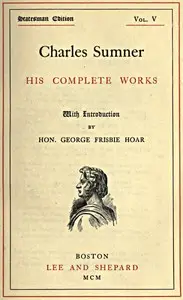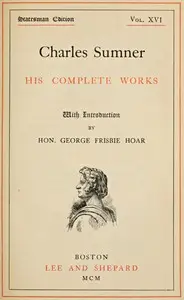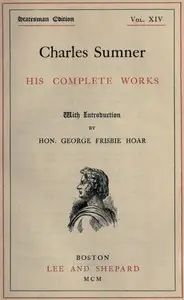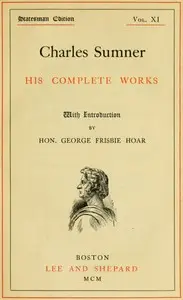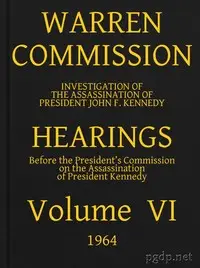"Charles Sumner: his complete works, volume 08 (of 20)" by Charles Sumner is a historical collection of speeches and writings from the notable American statesman, likely compiled in the late 19th century. This volume emphasizes key issues faced during the Civil War era, including legal reforms, emancipation, and the rights of fugitive slaves. Sumner's articulate arguments reflect his commitment to human rights and the abolition of slavery, offering an insightful perspective on this critical period in American history. The opening of this work introduces various resolutions and speeches presented by Sumner in the Senate around 1861 and 1862. He revisits his long-standing proposals for the revision of national statutes, addresses the injustices faced by colored inventors concerning patent rights, and advocates for the humane treatment of fugitive slaves by the Union army. Additionally, he tackles the political expulsion of those who supported secession, illustrating the intense debates and moral dilemmas that characterized U.S. governance amid the Civil War. This opening segment not only sets the stage for Sumner's powerful oratory but also underscores the socio-political landscape of a nation grappling with its principles of liberty and justice. (This is an automatically generated summary.)
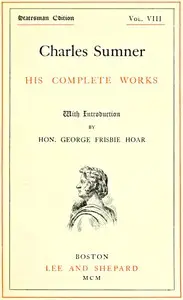
Charles Sumner: his complete works, volume 08 (of 20)
By Charles Sumner
"Charles Sumner: his complete works, volume 08 (of 20)" by Charles Sumner is a historical collection of speeches and writings from the notable America...
Charles Sumner was an American lawyer, politician, and statesman who represented Massachusetts in the United States Senate from 1851 until his death in 1874. Before and during the American Civil War, he was a leading American advocate for the abolition of slavery. He chaired the Senate Foreign Relations Committee from 1861 to 1871, until he lost the position following a dispute with President Ulysses S. Grant over the attempted annexation of Santo Domingo. After breaking with Grant, he joined the Liberal Republican Party, spending his final two years in the Senate alienated from his party. Sumner had a controversial and divisive legacy for many years after his death, but in recent decades, his historical reputation has improved in recognition of his early support for racial equality.

